On life in cages, judicial expertise & SBU promptness in trial of UOJ staff
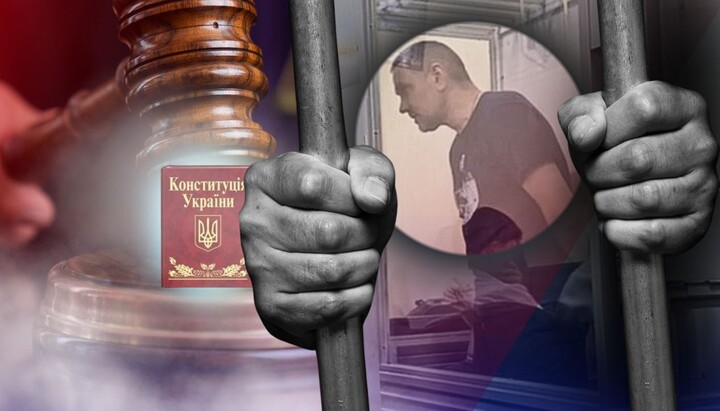
UOJ employee Andriy Ovcharenko, detained for three months, spoke about what a person who has fallen into the hands of the Ukrainian judicial system has to endure.
UOJ staff member Andriy Ovcharenko shared details of the latest court session concerning Orthodox journalists.
Andriy wrote the text while in the Lukyanivsky detention centre and passed it on to the UOJ through his lawyer.
On trial preparation
A defendant must approach a court session prepared both mentally and physically. The administration of the pre-trial detention centre and the convoy logistics system – both the police and, in our case, the SBU – work for this.
In the detention centre, you are warned about your court hearing the evening before, sometimes late at night. Around 8-9 AM, you are notified: "Ovcharenko, to court, 10 minutes." This means that you will be picked up in about 30 minutes. Or 40. Or 50.
First, you end up "in the boxes"—small rooms about 1.5-2 х 2.5 metres, heavily scented with the smell of tobacco, where you have the opportunity to chat with other detainees for about an hour or an hour and a half.
Then you are ergonomically packed into a prison van. There are usually a few single booths and one for three people, where they often seat four. Then you are transported to the courts.
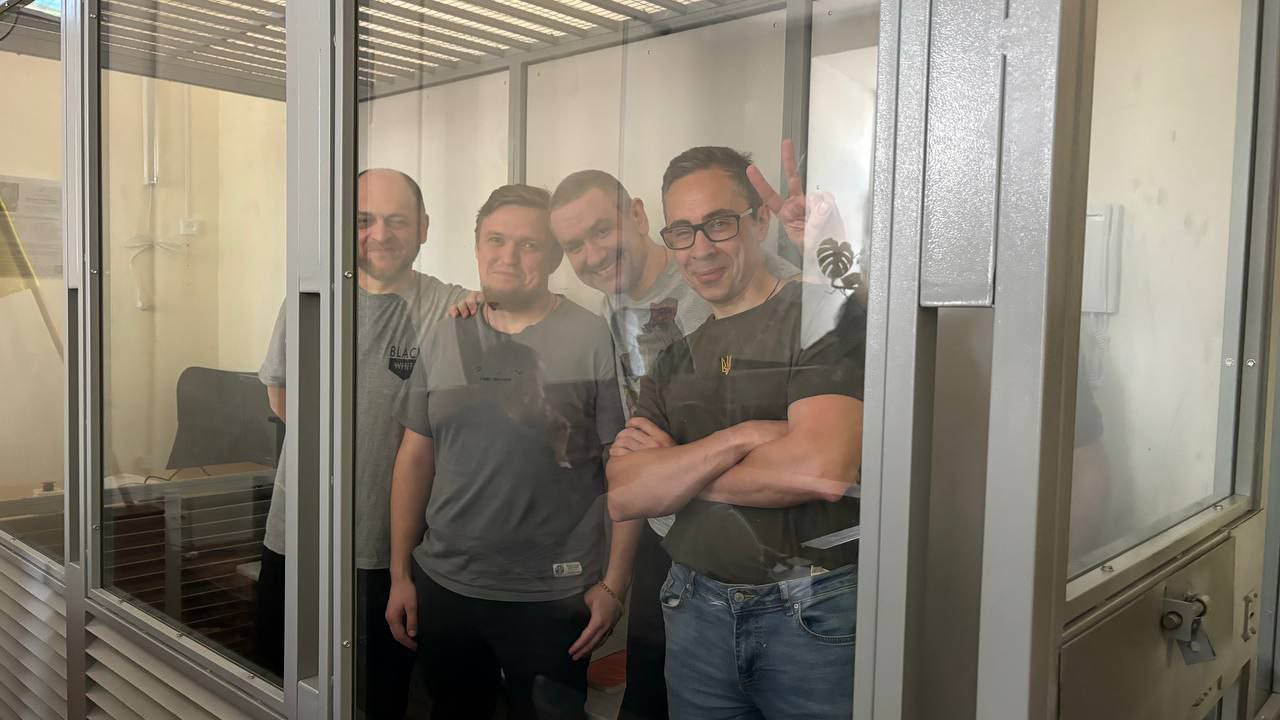
UOJ journalists and Archpriest Serhiy Chertylin in court
Once, other detainees and I were brought to the Shevchenkivskyi District Court of Kyiv instead of the Solomyanskyi Court, where our case is being heard. It turned out this was just part of the logistics—we had to wait there before being taken to Solomyanskyi.
I sat in the boxes with my companions from Lukyanivka for 6 hours. They were unlucky: their hearing was postponed. I was luckier: my session took place. But to attend it, I first had to go back to the detention centre, where the unlucky guys were returned, then to Solomyanskyi, and then sit in the boxes there, though not for long—at most an hour.
When asked why I couldn’t be taken from the detention centre after the return of the “Shevchenkivskyi” detainees, the escort smiled disarmingly: “How should I know?!”
This time I was even luckier—we were taken directly the Solomyanskyi Court located in Shutova Str. Moreover, my “accomplices” and I were even given time to talk, being locked in a box six hours before the hearing.
By the way, not all boxes are the same. In Shutova Str., they are little cells less than a meter by a meter, where you can either sit on a small bench or stand, preferably without moving, to avoid injury. For example, in another Solomianskyi court building located in Kryvonosa Str., the boxes are spacious, multi-seat, with wide benches. Over time, you start to understand and can more expertly join the conversation in the detention centre: “Oh, so you’re going to Kryvonosa? Well, you are living large, congrats!”
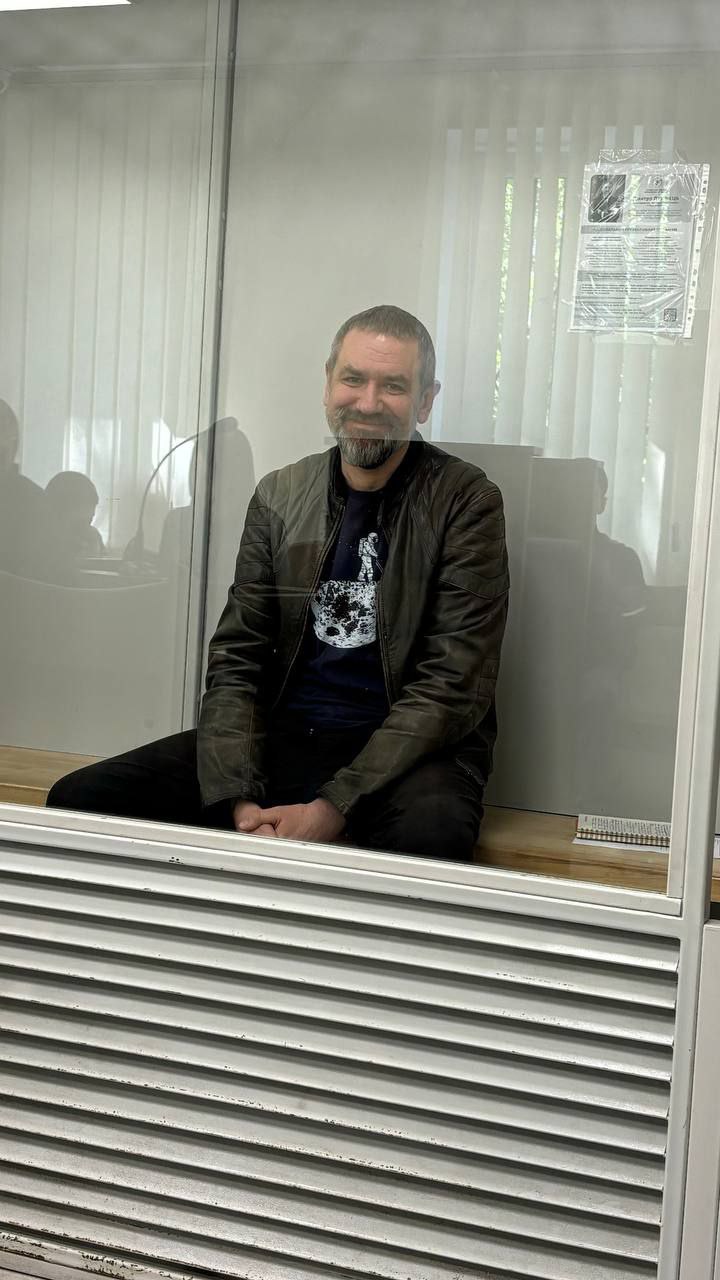
Andriy Ovcharenko in court
On that day, we were unlucky in only one thing: after the session ended, we were brought back to the detention centre after 10 PM, when many staff had already gone home. Therefore, we were almost immediately taken to our cells. Usually, upon return, detainees have the opportunity to sit in the local boxes and share their impressions for an hour, two, or even three.
On judicial expertise
If it weren’t for my firm belief in the infallibility of the Ukrainian justice system, I would suspect that the decision on our case had already been made by the SBU headquarters. And everything happening in the courtroom is just a mere formality.
Nevertheless, it is very annoying for Judge Dmytro Kratko. For him, the session almost became "especially grave"—like the articles charged against us. Each motion, each statement by the defence hit him with a crushing blow. After all, each was backed by a specific norm of the Criminal Procedure Code, the Constitution, and the practice of the European Court of Human Rights.
But fortunately for the judge, he had a powerful shield which he skilfully used: according to him, he is the main authority at the session. This means he knows best how to interpret any circumstance of the hearing. If not all the defendants or their defenders are present at the trial—it's their fault. If a defendant is left without a lawyer—defend yourself. If a defendant feels unwell after ten hours in the cage—you can go and rest, no one is holding you, we’ll make a decision without you.
And all these norms and laws are just an irritating white noise. Look, Prosecutor Ihor Rula gets by without them, he just says a word—and you immediately believe him, without any Criminal Procedure Code.
On requests to the Universe
There were, indeed, challenging moments for Kratko when the defence cunningly made an entire web of legislative norms to trap the judge. Then he would take his smartphone and feverishly tap the screen, as if sending a request to the Universe. Simultaneously, the SBU representative, who invariably attended each session, seemed to be solving the problem as well, delving into his phone messages. The Universe unfailingly responded: within half a minute, the judge, his face brightening, would dismiss another defence argument.
He also rejected motions to disqualify the prosecutor and managed to dismiss several motions to disqualify himself. "The defence is abusing the tool of motions," he explained.
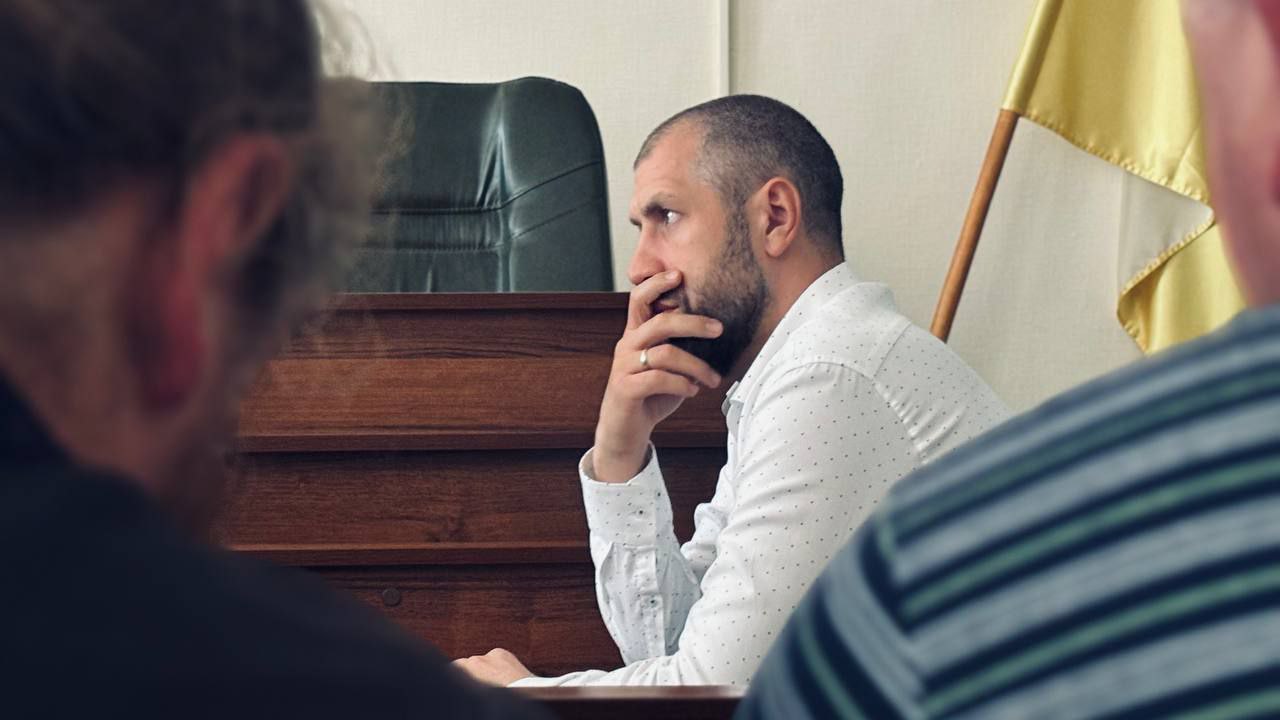
Illia Serafimov, Andriy Ovcharenko’s lawyer
On what is needed for defence
When the main debates were over, Kratko initiated an almost heartfelt conversation with the defendants.
“What investigative actions do you lack to prove your innocence?” he asked.
“Firstly, at least some interrogations,” I replied. “We've been behind bars for three months, and we haven't even been interrogated. Secondly, there’s nothing to prove here at all. All we need is an adequate judge who will at least give minimal attention to the text of the suspicion from the investigation. If any lawyer or just a reasonable person (and we assume they don’t appoint fools as judges) simply reads this suspicion and any mentioned text from the UOJ, they will see that there isn’t even a hint of a crime. There’s not a single word about how I or the other suspects collaborate with Russia, the Kremlin or Putin; no screenshots or printouts of conversations with an FSB lieutenant, colonel or general. But how can a judge, during a short court session or 20 minutes in the deliberation room, even partially study those over 700+ pages that were scribbled in the suspicion? Especially when an SBU investigator enters the room after him!?”
At these words, the judge twitched a little, but it didn’t spoil the overall touching moment. Nor was it spoilt by the members of the SBU investigator Oleh Savenko’s team, who smoked under the windows for several hours, just like us, waiting for the court’s decision.
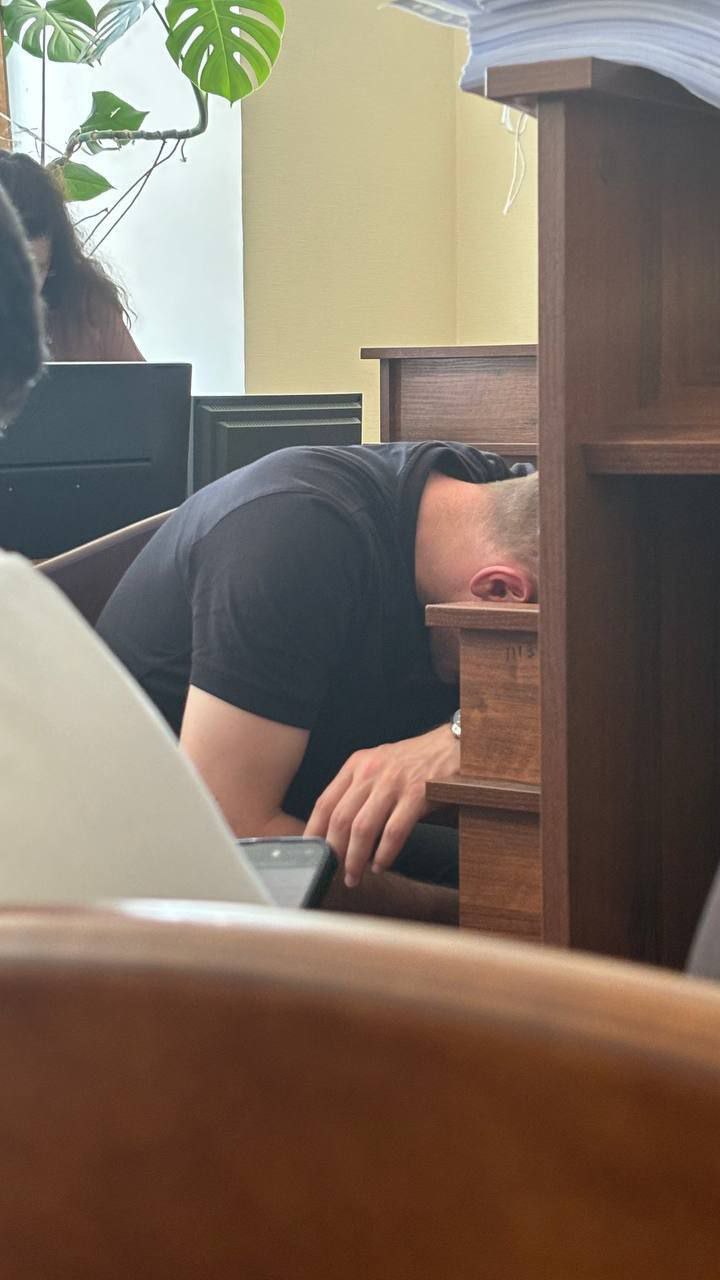
SBU investigator Oleh Savenko
On the SBU's superhuman abilities
The next morning, they demonstrated phenomenal promptness. As soon as the judge announced the decision and left the courtroom, Savenko and his colleagues entered, carrying bulky folders filled with papers.
It turned out these were copies of a fresh motion to extend our detention. For the investigation to file this, they had to wait for the decision to extend the investigative actions.
Upon hearing Kratko’s decision, they managed to instantly study it, draft their new motion based on it, print it out over 700+ pages for each suspect and their defence attorney, and have it signed by the investigator and the prosecutor. All of this within a minute, if that.
With such abilities, any cynic would believe that the foundations of Ukraine's national security, which we are suspected to undermine, are in reliable hands.











